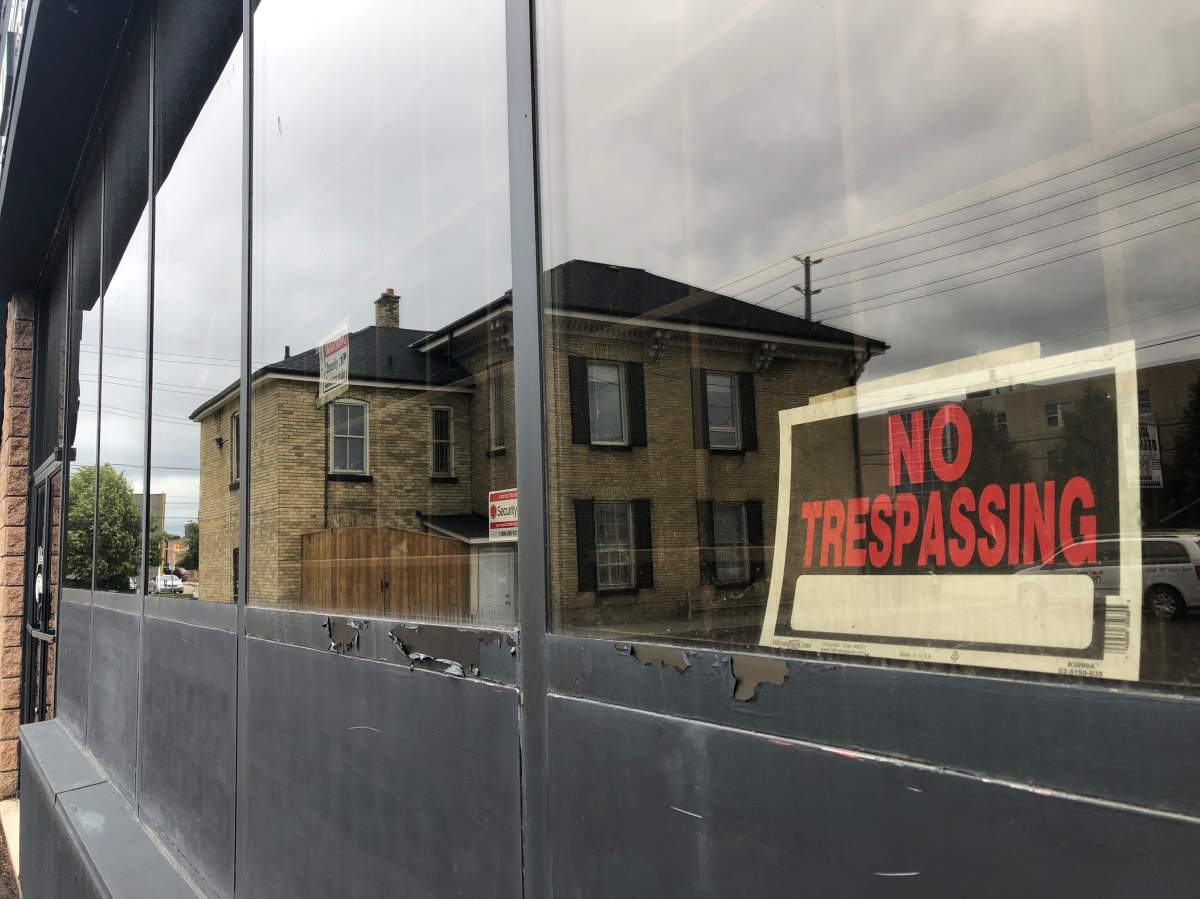An opening date is in sight for London, Ont.’s first permanent supervised consumption site, but the upcoming facility’s operator says there’s still plenty of work before 446 York St. can begin serving clients.

On Monday, Regional HIV/AIDS Connection (RHAC) executive director Brian Lester told Global News the agency is working through the process of securing funding from Ontario’s Ministry of Health.
This includes covering the costs of retrofitting the site, which formerly housed John Bellone Musical Instruments, in order to accomodate a supervised consumption facility, a cost that Lester has pegged at around $1 million.
“Once the financial piece of the application process is sorted out and approved, then the application would go to tender — essentially looking for a firm to execute the work,” Lester said.
Lester hopes that by fall 2021, RHAC will be able to find a firm to do the retrofit, which should take four to six months to complete.
“I would hope that we would be operating no later than March (2022)… there’s COVID influences, there’s been reports about supply chain issues related to construction products, so we’ll see what happens,” Lester said.
“We’re anxious to get to the new site, we have outgrown 186 King St., there’s also a lot of construction going on around our area, which creates barriers to access for people.”
In the meantime, work continues at the temporary overdose prevention site (TOPS) at 186 King St.

Get weekly health news
There haven’t been any deaths at TOPS since it opened in 2018, but Lester says he’s still concerned about what’s happening outside the facility.
Part of what’s happening can be found in a provincial report published late last year, which found that, “generally, the increased rate of opioid-related deaths during the pandemic has occurred throughout the province.”
Another follow-up provincial report published in May found fatal opioid overdoses were up more than 75 per cent after COVID-19 hit in March 2020, compared to the year before. This pandemic-linked increase was also seen locally, with the Middlesex-London Health Unit reporting 80 confirmed or suspected opioid related deaths between March 16 and December 31, 2020, up from 49 the year prior.
A total of 2,426 people died from a confirmed or suspected opioid-related death in 2020 across Ontario, making a 60 per cent increase from the 1,517 people who died in 2019, according to the report.
Lester noted that service providers, such as RHAC, have also faced challenges tied to restrictions related to COVID-19, such as physical distancing.
“Sometimes that has slowed down access just because we can’t run as many seats in the program because there’s not enough room,” Lester said.
“The space that we operate out of has never really been adequate. We created something as a temporary measure, as the temporary overdose prevention site, but not intended to be the long-term site.”
The upcoming permanent site at 446 York St. has been in the works since 2018 and survived opposition from some of its neighbours, along with a failed attempt to appeal its rezoning.
Even if all goes according to plan, there’s still more than a half year’s worth of work to do before the site can finally open, but Lester says he’d rather not rush the process.
“That last thing I would want to be is at the other end of this and there are key pieces that we’ve forgotten about,” Lester said.
“Both between the work at RHAC and the Ministry (of Health), that won’t happen.”









Comments